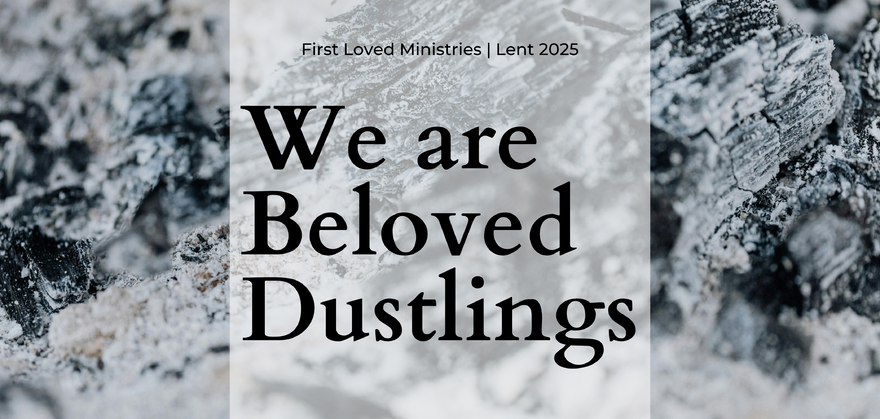
Do you remember finding treasures when you were playing outside as a kid? An interesting stick, (that was actually, really a sword), or a beautiful rock (which was probably a priceless gemstone). I remember I once found the softest little feather. It was fluffy like it had come from a baby bird, and as far as my 5-year-old self was concerned, it was a baby - it was my baby. I found an old bandana and wrapped up the feather and carried it around with me all afternoon, gently cradling it. The adults around me thought my affection and care were silly and nonsensical, but they didn’t know what I knew. You see, I knew that I was taking care of the most precious thing to ever grace the outside.
This memory helps me understand what we mean when, at First Loved, we talk about value being subjective. The affection that I felt for that tiny piece of fluff was not something someone else could measure, it was mine alone. And I expressed that affection and value through my actions - I showed the feather my love because it belonged to me, and I held it with Belonging Value.
Belonging Value is the strongest, most urgent motivation in all creation. We see this in the parables Jesus tells in Luke 15. Some teachers and bible publishers have named these the “lost” parables, but that seems to miss the main point of what Jesus is communicating to the listeners. Things are only ‘lost’ if they have someone who loves them, someone who notices and cares that they are gone. The only way something or someone can be ‘lost’ is if they belong with and to someone else. The neighbor down the street won’t care if one sheep wanders off, but the shepherd cares and does something about it. The shop owner in town doesn’t care that the lady lost her coin, but she cares and she does everything she can to find it.
Can’t you hear the people on the outside looking in, “it’s not worth it, just get a new one.” They can’t see the priceless, immeasurable depth of value that belonging adds to something. So Jesus tells them a story about a Father, a parent who loves his two children. A parent whose affection and value know no bounds, who respects and honors his kids, even when they don’t offer him back that same respect and honor. One disrespects him when he leaves, and the other disrespects him when the first comes back. Neither of them understands their Father’s love, for themself or for their brother. Which seems to be the exact point Jesus is making.
“Now the tax collectors and sinners were all gathering around to hear Jesus. But the Pharisees and the teachers of the law muttered, “This man welcomes sinners and eats with them.” (Luke 15:1-2)
“What is wrong with Jesus? These people are not worthy to be welcomed in, certainly not worthy of a shared meal. He might as well be caring for a tiny feather in a dusty old cloth. That makes as much sense as spending time with these kinds of people.”
Jesus, who is compassionate and gracious, slow to anger and abounding in love for all of them, tells them stories of belonging. This is what belonging value compels me to do, and so much more. The sheep cannot find itself. It is simple, and slow, and limited. The coin cannot find itself; it’s inanimate, so it cannot do anything to help itself. The sons are stuck in their perspective, their limited, simple, even harmful ways of thinking, and feeling, and living, and loving. Jesus tells them the story of a father who loves them too much to let them be in charge of evaluating their own worth, or the worth of their brothers. Jesus tells the listeners, the sinners and the saints, their own story.
Jesus tells us our story. We are simple, we are limited, and left to our own metrics, we would spiral in our shame or puff up in our pride - and in either case, we would be lost, powerless to find ourselves. But remember, the only reason we are ‘lost’ is because we belong with and to a heavenly father who loves us. We have a loving older brother who came to seek and save us when we have been wronged and have done wrong. We see this story told over and over in scripture, not just in the New Testament, but this has been the story God has been telling people throughout history! We are fragile and limited, and the God of all creation chooses us and treasures us. As we prepare our hearts and minds for Good Friday and Resurrection Sunday, let us remember that God’s unending belonging value for us is what motivated them, the Father, Son, and Spirit, to enter into the fragility of the human experience and recover what was lost. Let us continue to enjoy Psalm 103, “As a father has compassion on his children, so the Lord has compassion on those who fear him; for he knows how we are formed, he remembers that we are dust.” Below are verses 13-14 personalized through the filter of Belonging Value:
Consider the best father you can imagine, see and hear the compassion he has for his children. That beloved, [insert your name here ____________], is what my love for you is like and so much more! For I know where you came from, how you got to where you are, what has and has not happened. I remember that you are limited, but you must remember that you are mine. You are dust, but you are my beloved dustling, ____________.


Comments